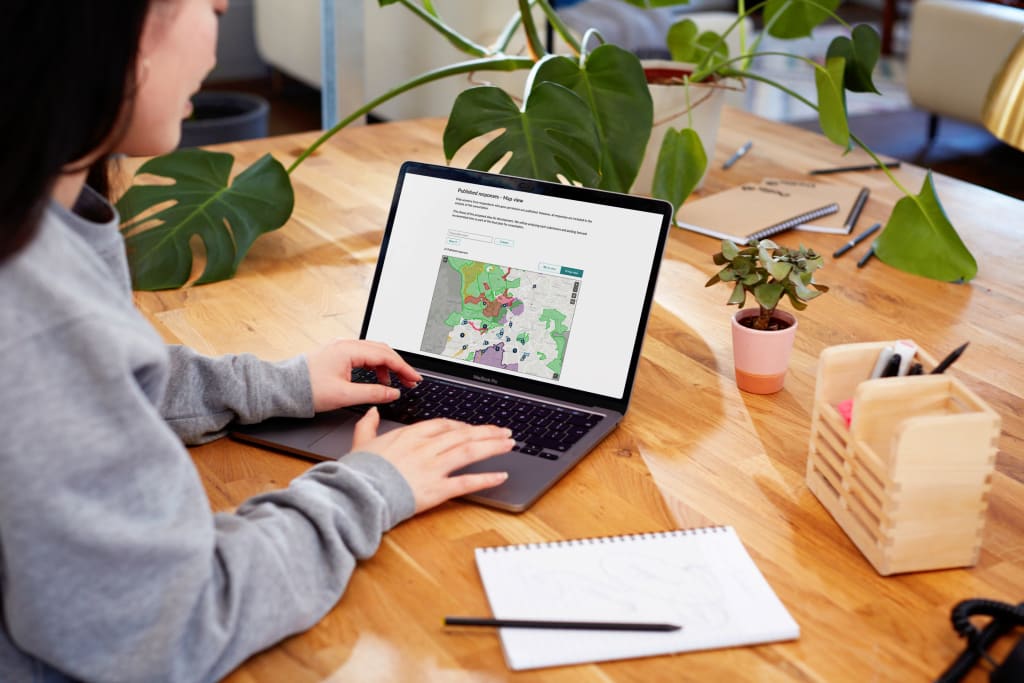
Police prioritisation has been a hot button issue for several decades. When police resources are limited, the day-to-day decisions around where those resources should be deployed is complex, and often controversial.
When more police are deployed to pursue serious crimes, that may take away resources currently being used for prevention. Where neighbourhood policing becomes the norm, it can mean resources used in areas where policing is rarely needed. Victim support is a critical aspect of police work, as are educational activities such as school visits, but how these activities should be prioritised is a source of great debate.
Why is public input important for police prioritisation?

For almost any contentious issue that involves a public body or service, it can be very helpful to have input from citizens. Within a democratic society, the role of police is not simply to enforce the law, but to serve the wider needs of the public. That is only possible if those needs are fully understood by decision-makers.
Other clear benefits of having public input on what police should prioritise include:
Demonstrating accountability and building trust
Asking for public input on policing decisions demonstrates accountability on behalf of the police. It shows that they are willing to take steps to listen, and act on issues that may be flagged in the process. This is particularly true when this process allows citizens to see what issues were raised and what decisions were taken as a result.
When people feel they have a say in the way policing is conducted, they are more likely to trust their local police force to act in their best interest. Over time, this can even lead to compliance rising and crime rates falling. Public trust is essential to effective policing, particularly neighbourhood policing, and consulting citizens is one of the most reliable ways to create mutual understanding and respect.
Taking a place-based approach
What the police should prioritise in one area is not necessarily the same as what they should prioritise in another. Some areas may have an issue with antisocial behaviour, others may have a problem with littering and flytipping. Some neighbourhoods may benefit from having a member of the police go into schools as part of prevention work, whereas others may need to see more “coppers on the beat” to reassure residents.
The best way to know what is most important for a given area is to ask the experts – the people who live there. Consulting residents about their priorities helps police forces to take a place-based approach. This means considering the local area as a key component of any strategy, not merely as an afterthought.
Improving operational effectiveness
Gathering insights from residents can help police forces to deploy their resources more efficiently. For example, if multiple residents report witnessing criminal activity in a specific location, it allows local teams to target that area more effectively.
This is especially helpful when it comes to crimes that are quick and difficult to track, like drug dealing. One phone call to the police may not result in a culprit being identified, but if multiple reports are made, patterns like times of day can emerge and lead to a conviction.
Reporting persistent non-violent offences, like harassment, drug dealing or littering, is one of the many ways govtech tools are changing policing. Through facilitating anonymous online reporting by residents, the public can very directly improve neighbourhood policing.
Identifying and tackling misinformation
In recent years, police have been facing a new and insidious threat to public safety: misinformation. Social media has made it easy to create and spread “fake news” about potential threats and criminal activity, which can sometimes take off in dangerous ways.
Viral, unsubstantiated posts about an individual or group of people can lead people to react with fear and anger. Sometimes this fear and anger can boil over into violent criminal activity of its own, like the harassment, abuse and criminal damage we saw in riots across the UK last year.
By giving the public a way to have an input on police prioritisation, local policing can easily see when misinformation begins to take hold and address it. It is rare for someone to call the police because they have heard a rumour. However, the casual nature of logging concerns or issues on an online platform can give officers vital insights into what the public believe at any given time.
Public consultation tactics for better citizen engagement

As we have established, consultation is a key tool for local police. It is essential to policing standards in a given area that any consultation or engagement activity receives broad engagement from the wider community. This is not always the case, however. Often, facilitators find that certain groups are represented much more heavily than others, skewing results and potentially leading to poor decision-making and prioritisation.
Improving the level of citizen and community engagement within neighbourhood policing is therefore of great importance.
Having a community engagement strategy can make a great deal of difference to the success of a consultation. Some other top tips include:
- Always follow the Gunning Principles: Ensure the legitimacy of your consultation by consulting early in any decision-making process, providing sufficient information, allowing adequate time to respond, and demonstrating that input is meaningfully considered.
- Utilise available govtech citizen engagement platforms: Hosting consultations online using purpose-built govtech tools makes participation easier, faster, and more accessible to a broader audience.
- Share public notices: Share consultation details through multiple channels, including digital channels, and traditional media including newspapers and noticeboards. This can help access the widest cross-section of a community.
- Promote the consultation on social media: Particularly using platforms with community-based groups like Facebook and NextDoor, in order to reach specific audiences and encourage organic sharing.
- When hosting a meeting, make sure it is hybrid: Offering both in-person and virtual options increases accessibility and ensures the largest possible audience is in attendance.
- Engage local community leaders: Work with trusted local figures to reach underrepresented communities and drive participation within their networks. This is particularly important for policing, where there may be little pre-existing trust from the public for local police.
- Be forthright and transparent where possible: Following a consultation, make sure to share anonymised results where possible. Demonstrate how responses were considered, and maintain trust by feeding back to participants after the consultation ends. When using a digital engagement platform, this feedback can happen within the platform, keeping things simple for all parties.
These are far from the only considerations when planning a consultation, however together they form a good starting point for any facilitator. Recently, digital platforms have made the process of planning, executing and advertising a policing consultation significantly simpler.
Using Digital Platforms to Improve Police Prioritisation Feedback

While police forces have largely understood the value of community engagement for decades, it has traditionally been done entirely in-person. Engagement would happen through street briefings, public meetings, local area committees or occasionally paper-based feedback.
While still valuable, many of these require a great deal of time and resources to organise and staff. Ironically, many of those taking part in a police prioritisation exercise would probably rank these events relatively low in terms of how they think police ought to be spending their time.
The increasing ubiquity of citizen engagement platforms has begun to change this, however. It is now possible for police forces to have all the benefits of engagement without always expending a great deal of resources.
Case Study: Police Scotland’s community engagement with citizen space
Since 2019, Police Scotland has been using Citizen Space to improve engagement across Scotland, increasing participation by over 500%.
Central to this engagement drive is their annual Your Police Survey, designed to “listen, understand, and take action.” By integrating Citizen Space Geospatial, they enhanced the survey with interactive maps, allowing respondents to mark areas where they feel unsafe. This new feature encouraged participation from those who may not otherwise have engaged, and provided in-depth, location-specific data.
The result was more actionable insights and a stronger connection between Police Scotland and the public, reinforcing trust and ensuring community voices shaped policing priorities.
“Everybody who’s used Citizen Space within Police Scotland loves it.”
– Davina Fereday, Research and Insight Manager, Police Scotland
Case Study: Using Simulator to shape policing priorities in Northern Ireland
Facing a 25% budget cut and changing crime patterns, the Police Service of Northern Ireland (PSNI) needed to reallocate resources and refocus strategy.
To ensure these potentially controversial changes had public support, they turned to Simulator, an interactive digital tool that allows citizens to allocate a set number of points across key policing areas like community safety, investigations, and emergency response.
Each choice came with clear impact statements, helping participants understand the real-world consequences of their decisions. Over 4,000 submissions were received, resulting in rich, high-quality feedback from a large cross-section of the local community. Using Simulator enabled meaningful public involvement, helping PSNI develop a strategy that reflected citizens’ values and priorities.
“We needed those answering the consultation to have an understanding of the demands PSNI face and how challenging it is to balance the resource across the various demands on local policing. Simulator was an ideal way of doing this: it was interactive and not only did we receive feedback, we received feedback which was more informed.”
– Police Service of Northern Ireland
Citizen Space is the go-to platform for connecting governments, developers, and citizens. If you’d like to learn more about how our software can aid police community engagement, book a free demo and we’ll walk you through it.
Sign up for the Delib newsletter here to get relevant updates posted to your email inbox.